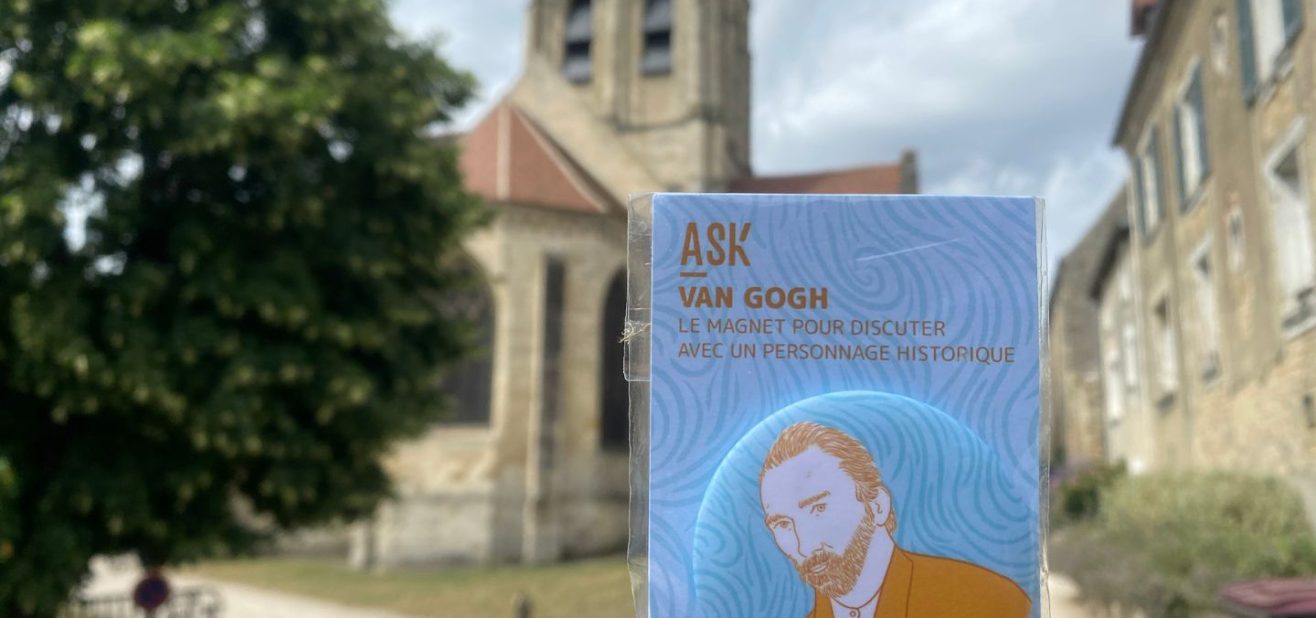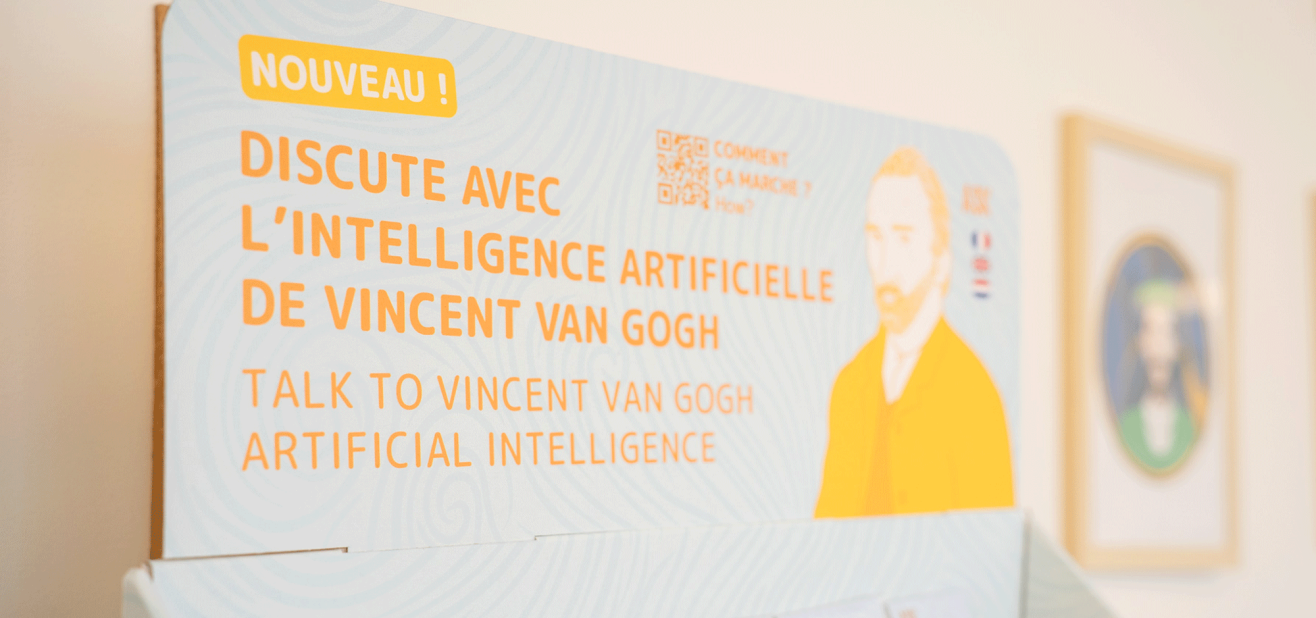#CULTURE
2 MINUTES
From Van Gogh to the Mona Lisa:
A Look Back at One of Ask Mona's Latest Hits, the Smart Magnet
In July 2023, Ask Mona launched its very first smart magnet, featuring Van Gogh, in partnership with Val D’Oise Tourisme. This launch marked the beginning of a revolution for cultural site gift shops and visitor interaction. From its early days, the Van Gogh magnet captured the interest of numerous visitors. Today, a year later, let’s review this technological adventure and discover the developments and new features that have emerged over this period.

100 000
Smart magnets sold
5
Sold in 5 countries
What is a Smart Magnet?
Ask Mona’s smart magnets are innovative souvenirs that offer an interactive experience. Each magnet is equipped with a QR code on the back, allowing visitors to engage in enriching conversations with artworks or historical figures related to collections and exhibitions. These conversations are available in five different languages.
Available in gift shops at cultural sites and tourist attractions, visitors can purchase the magnet of their choice and take home an interactive souvenir that extends their experience beyond the venue’s walls.

Why Offer Smart Magnets to Visitors?
Learning through Interaction:
Ask Mona’s smart magnets incorporate generative artificial intelligence to provide an interactive learning experience. Visitors can freely ask questions about the artwork, historical figure, or monument depicted on the magnet. This interaction not only enhances their understanding but also stimulates their curiosity and engages them more deeply in their cultural exploration.
Extending the Experience Beyond the Visit:
After their visit, the magnets allow visitors to continue interacting with the artwork or figure represented, enriching their cultural experience beyond the museum walls. This ability to extend and deepen their discovery strengthens their connection with the cultural institution.
Generating New Revenue:
For cultural institutions, smart magnets represent a new revenue stream while enhancing their digital offerings and attracting a broader audience.
By offering products that incorporate generative AI technology, museums can diversify their offerings, attract a wider audience, and reinforce their commitment to cultural inclusivity. These products often garner media attention as well.
From Beginnings to Now: Evolution of the Smart Magnet Collections
Since their initial launch, more than 100,000 magnets have been distributed at cultural and heritage sites across five different countries. The collections have also evolved to offer a variety of experiences.
The first collection highlighted historical figures such as Van Gogh, Marie Antoinette, and Napoleon. Today, more than 45 historical and cultural figures are available, enriching visitors’ experiences by allowing for stimulating and educational interactions.
But we decided to go further: we created other collections.
The collection dedicated to historical monuments, for example, allows visitors to learn more about iconic landmarks. Places like the Fountain of the Three Graces in Montpellier and the Maison Carrée in Nîmes now reveal their architectural secrets and fascinating anecdotes through smart magnets.
Finally, the latest major collection focuses on famous artworks such as the Mona Lisa and Girl with a Pearl Earring, offering visitors the opportunity to virtually engage with globally renowned masterpieces.








